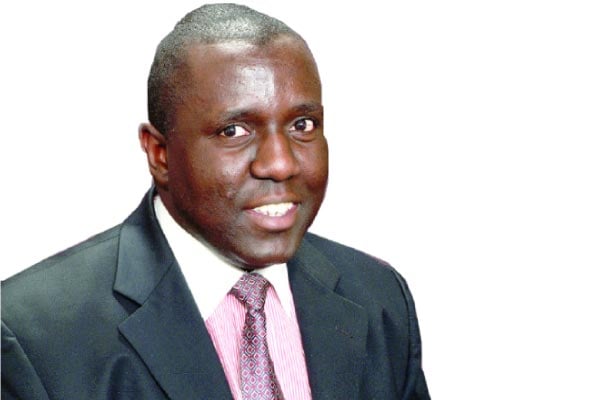Supreme Court: Response to Kanyeihamba on age limit ruling

Sunday Monitor carried retired Supreme Court Justice, George W. Kanyeihamba’s article flaying his former four colleagues who dismissed the age limit appeal giving green-light to persons above seventy-five years to vie for the president of Uganda. While Kanyeihamba is known to be an avid reader and critic of the NRM, his article this time round doesn’t pass, and probably, in his usual abrasive fashion he knows that many, particularly serving judges, will not directly respond to him.
Kanyeihamba said the four Justices - CJ Bart Katureebe, Jotham Tumwesigye, Opio-Aweri and Stella Arach Amoko looked the law and evidence adduced before them through politically partisan lenses, and therefore, didn’t adequately quote MPs on the issue of the alleged lack of consultation.
He then proceeded to accuse them of having “dismissed the appeal and ignored this fact and then politically and in a partisan manner gave the reason citing one or two MPs of the same ilk who had falsely sworn affidavit that they had consulted the people in their constituencies without revealing those they consulted.”
Evidently, Kanyeihamba wrote his piece before reading the entire judgment otherwise he would have noticed that CJ Katureebe (pages 37-45) actually quoted at length, not from the affidavits, but Parliament Hansard of December 20, 2017. The judges similarly quoted. Justice Katureebe, quoted MPs Joy Atim Ongom (UPC, Lira District), who said she consulted over six thousand people and all told her “No”, not to “touch” the Constitution. Justice Katurebe further quoted Michael Kabaziguruka (FDC Nakawa), who said he consulted in all the 23 parishes where he was told not to amend the Constitution.
Furthermore, Katureebe, quoted Francis Mwijukye (FDC Buhweju), who said he held 14 rallies and that at each of them, people told him that they “were interested in peace and stability, and therefore, the Constitution shouldn’t be amended,” as its amendment could cause instability. Another Opposition MP, CJ Katureebe quoted, was Angelline Osege (FDC, Soroti District), who reported that she consulted in all the 10 sub-counties forming Soroti District.
According to the Hansard as quoted by Katureebe, Osege said, “in no meeting did anyone rise up to support the amendment.” And perhaps the most poignant graphic presentation by Osege was, “there are women in Soroti District that earn a living by cracking Katine rock. When I went to have a meeting with them, they told me to come and tell you that if you think they have forgotten what they did some years ago, they have not. They said they are going to abandon producing children and focus on Uganda. That is a very deep sentiment from village women that you cannot take for granted. What does it show? They take it as unfair. There is no amount of washing or laundering that will make this amendment look clean”
And citing from the same Hansard, Katureebe quoted Julius Ocen (Independent Kapelebyong), who said he “consulted 8,073 people throughout Kapelebyong County with five sub-counties, and others from outside my constituency. Go and tell the people of Uganda never to touch or tamper with the Constitution of the Republic of Uganda.” Ocen said only 15 people supported the amendment.
Kanyeihamba then stated “It will be recalled also that not only MPs, but the media and civil society had done this exercise themselves and found that the overwhelming majority of Ugandans did not want their Constitution to be ‘touched’. Ultimately, the four judges who dismissed the appeal ignored this fact and then politically and in a partisan manner gave the reason citing one or two MPs of the same ilk who had falsely sworn affidavit that they had consulted the people in their constituencies without revealing those they consulted.”
Kanyeihamba continues thus: “It should have been the evidence of support rather than the mere casual visit to the constituencies that should have been what convinced the judges. Instead, they betrayed the nation and their oath with a hollow and partisan majority opinion. Justice Katureebe further quoted Theodore Sekikubo (NRM, Lwemiyaga), who said he consulted his constituency and was in addition “speaking for other parts of Uganda, who told him not touch the Constitution and President Museveni must retire.” And virtually every MP who spoke on the floor claimed they had consulted their voters and the views and stand, whether in support or Opposition was borne by that fact.
In the Constituent Assembly where Kanyeihamba was delegate for Rubanda, I don’t recall them being sent to conduct direct consultations. On the contrary, in many instances, provisions in Justice Odoki’s Report and Draft Constitution were amended, or abandoned altogether by delegates who believed they knew Constitutional Law and Uganda’s, and the most eloquent of them all was often George W. Kanyeihamba.
Mr Opondo is the executive director of Uganda Media centre.




